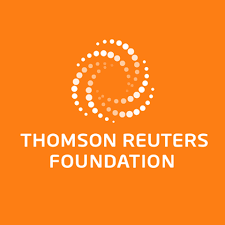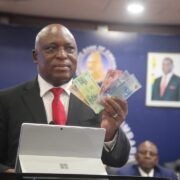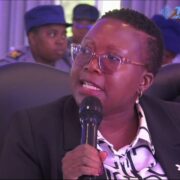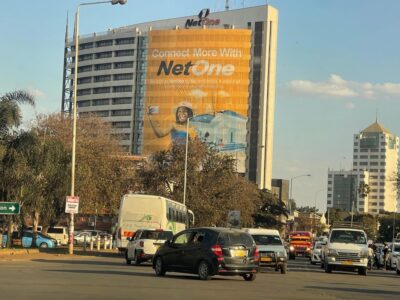By Ross Moyo
Today is the deadline for journalists from Zimbabwe, Kenya and Tanzania to apply for the Thomson Reuters Foundation (TRF) program they have availed to these three African nations.
According to the Thomson Reuters Foundation, Strengthening media and civil society capacity and resilience in reporting and communicating about illegal transnational issues affecting Kenya, Tanzania and Zimbabwe is the main reason they have made a
Call for Applications from Journalists.
In a statement TRF wrote, “Course Dates: Course Location:
23:59 EAT, Tuesday, 28th January 2025 APPLY HERE : Click on the link to apply.
Are you a journalist, working in Kenya, Tanzania or Zimbabwe, with an interest to report on and produce compelling content on trans-national issues such as wildlife smuggling, unregulated fishing and exploitative labour practices, to better inform and engage your audiences? If you are, this exciting new training and story mentoring programme may be for you!”
TRF continued, “Application deadline:
TBC in February- March 2025, 9:00-16:00 Local time In-person, In Country
1. Introduction
Thomson Reuters Foundation (TRF) is the corporate foundation of Thomson Reuters, the global news and information services company. As an independent charity we work to advance media freedom, foster more inclusive economies, and promote human rights. We combine our unique media development and legal services to drive systemic change through news, capacity strengthening, free legal assistance, and convening initiatives.”
As part of its global programme to advance free, fair and informed societies, the Thomson Reuters Foundation is working to strengthen the resilience, credibility and editorial sustainability of media in sub- Saharan Africa. Working with newsrooms, journalists and civil society organisations, the project aims to ensure that audiences in the region have access to transparent and accurate reporting. The focus countries for this project are Kenya, Tanzania and Zimbabwe.
One of the key aspects of the project involves TRF’s unique dual-track training for civil society organisations (CSOs) and journalists on strategic communications and reporting on transnational issues, in order to strengthen public-interest reporting on these issues for a wider audience.
The initial 4-day course will be delivered through TRF’s Dual Track approach; journalists and representatives of CSOs will take part in simultaneous training courses (tracks) led by their leading team of trainers. At strategic moments during the four days, and through subsequent programme engagements, the two tracks will come together for joint sessions to facilitate mutual learning and networking. This approach has proven highly successful in strengthening collaboration between the media and civil society.
TRF said it, @acknowledges the importance of both CSOs and journalists in bringing to light issues on transnational illegal activities such as wildlife smuggling, unregulated fishing and exploitative labour practices, which are impacting countries’ economies as well as wider regional stability.
The training will look at key challenges journalists in Kenya, Tanzania and Zimbabwe face when investigating these stories, as well give useful tips to improve the quality of the content they produce on these issues. Additionally, the training will equip Civil Society Organisations working on these topics on how to effectively engage the media to raise awareness and garner action from policy makers on these issues.
2
2. Background
Transnational issues in sub-Saharan African countries, such as cross-border trade, migration, and security threats, pose significant challenges that affect the region’s stability and development. These complex issues often have far-reaching consequences, impacting economic growth, social cohesion and political stability.
As such, independent public-interest journalism has a role to play by accurately reporting on and producing accessible content to publics in order to hold those in power accountable. Part of that high quality reporting is to have access to Civil society actors in this space who are able to communicate their work so media can ensure they capture all community voices and frontline issues.
3. Training and Mentoring
Accordingly, Thomson Reuters Foundation (TRF), the corporate foundation of Thomson Reuters, is collaborating with local/regional media and Civil Society Organisations (CSOs) to deliver a training and story mentoring programme that addresses the needs of journalists in Kenya, Tanzania and Zimbabwe as well as communication training for CSOs in the sector to strengthen the work of both groups and lead to more informed audiences.”
The four-day training course will be delivered through TRF’s Dual Track approach; journalists and representatives of CSOs will take part in simultaneous training courses (tracks) led by our leading team of experienced professional trainers
The training will look at key challenges journalists in Kenya, Tanzania and Zimbabwe face when exploring stories on exploitative labour practices, wildlife smuggling and unregulated fishing, to name a few, as well as steer higher-quality story formats.
4. The Programme Learning Journey
This programme offers targeted support to journalists and civil society organisations. Programme participants will have the opportunity to progress through the following programme stages:
i. Onboarding onto the programme through one-to-one conversations with TRF staff.
ii. Participation in TRF’s dual-track training course in Harare, Zimbabwe, Nairobi, Kenya and
Dar es Salaam, Tanzania between February and March 2025.
iii. The opportunity to access direct one-to-one mentorship with a TRF mentor to develop and
publish (or broadcast) an original journalistic work on the topics identified above. Places in the mentoring scheme will be awarded through a competitive proposal review process, and proposals must focus on transnational issues. Small grants will be awarded to applicants whose proposals are successful.
iv. The opportunity to access legal support made available through the Legal Network for Journalists at Risk (LNJAR) platform and the Legal Service for Independent Media (LSIM) through TRF’s Trust Law network. Participation in a network of journalist and CSO alumni, with opportunities to engage in other relevant TRF programmes as they are rolled out.
5. Expected Programme Outcomes
Journalists are expected to acquire the tools and know-how to report confidently on transnational issues in accordance with the Reuters Principles of Journalism to uphold accuracy and fairness when reporting on transnational issues. They will also be able to articulate solutions to overcoming barriers to reporting on these issues – particularly for marginalised and vulnerable groups – and better understand the work undertaken by their CSO counterparts.
6. The Dual-Track Training Course
Participation in the Dual-Track Training course is the third stage of the programme and requires in-person participation between February- March 2025.
3
Training Course Format:
Course Dates: TBC February/March 2025 (in person) Course Location: In Country
• The four-day course will be delivered through a blend of in-person modules, practical group work, guest sessions with subject-matter experts, exercises and individual assignments.
• The journalism and CSO training tracks will proceed separately, with joint sessions built into the agenda to bring the two tracks together at various points. These joint sessions will offer opportunities for discussion on some of the issues, practising skills with professional peers, learning more about one another’s work, and networking.
• The training will be run in English.
• Journalist participants are also strongly encouraged to come with a story idea that they can develop
as the course proceeds.
• Journalist participants will have the opportunity to interview their CSO counterparts in practical joint
exercises.
Training Course Costs:
The following costs will be covered by TRF:
• Local transportation to/from course venue
• Meals and refreshments and/or a daily per-diem to cover meals not provided during course hours.
TRF will consider reimbursement of other reasonable costs which participants may expect to incur to enable participation in the training course. Costs outside of those listed above must be discussed and agreed with TRF in advance of the course.
Training Course Principles:
The training course is a safe environment designed to be practical and interactive. Participants will work on real-world and hypothetical issues, contributing to discussions and sharing insights from their experience. TRF expects:
• Participants to provide respectful, constructive, and meaningful contributions during and after the course.
• Journalists and civil society participants to forge networks and identify issues worthy of coverage.
• All participants to engage with one another, share knowledge and experience of their work and
examples of how they may have overcome challenges.
• Ongoing and active engagement in activities as described above.
7. Application Process and Eligibility Criteria
Eligibility – Journalists:
To be eligible to participate in this programme journalist applicants must be:
• Full-time journalists or active regular contributors to a media publication or social media platform in country.
• Able to demonstrate at least three years of professional experience, whether working as a journalist for a media organisation, creating content for a social media platform, or another form of journalistic activity.
• Experienced in reporting on human rights and/or transnational issues, or able to show a demonstrable interest in such reporting.
• Able to publish/broadcast an original piece of journalism on the theme of transnational illegal issues in a publication/platform that they are part of or regularly contribute to.
4
• Fluent in English. The mode of delivery of all sessions will be in English. Application requirements:
o To apply, please complete the application form using the link below. The form must be completed in full for your application to be considered. Successful candidates will be informed of the specific training dates in their respective countries.
Should your application be successful, you will be required to provide a letter from your editor or manager confirming your availability to travel and participate in the four-day training course.
TRF concluded stating “APPLY HERE
Please note: There are limited spaces available for this programme. All applications will be considered on merit.
If you have any difficulties applying, please email [email protected] or [email protected]
Thomson Reuters Foundation (TRF) supports journalists by providing training, resources, and legal assistance. The TRF’s goal is to help journalists develop the skills and connections they need to ethically report on complex issues including technology, climate change and, minority right.














Comments